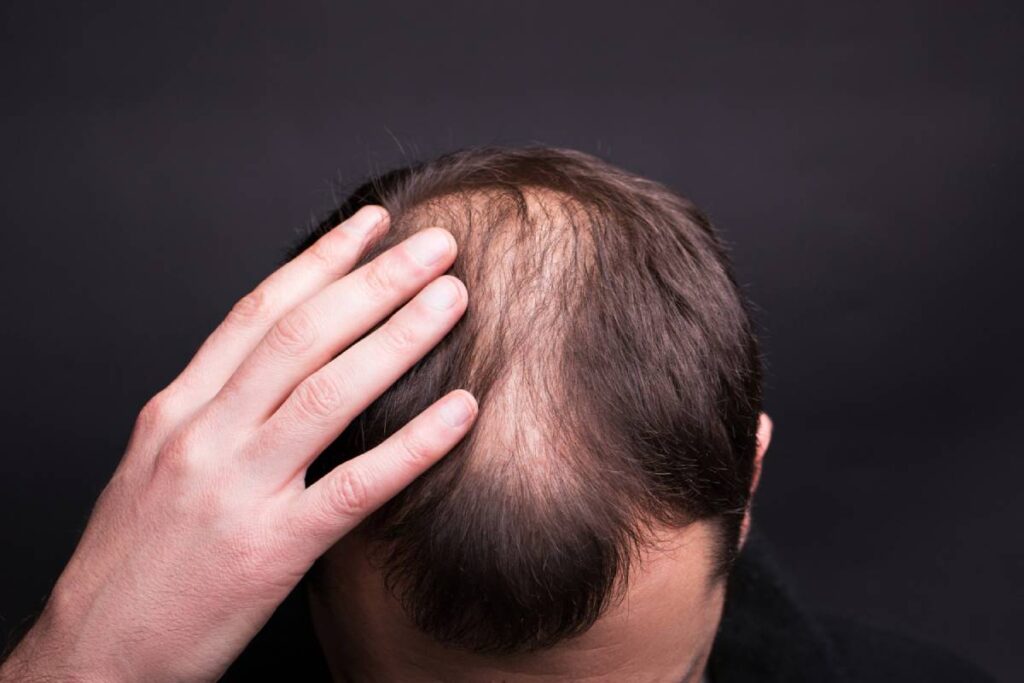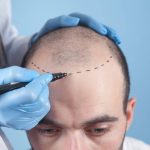Understanding Hair Transplantation for Thinning Hair
Hair loss is a common concern, and thinning hair can be a distressing issue for both men and women. Fortunately, hair transplantation has emerged as a highly effective solution for those seeking to restore lost volume and achieve a fuller, healthier look. Hair transplantation involves transferring healthy hair follicles from a donor area, typically the back or sides of the scalp, to areas affected by thinning or baldness. This procedure not only provides a permanent solution to hair loss but also delivers natural-looking results. Whether you are experiencing early stages of thinning hair or more advanced baldness, hair transplantation offers a path to restore confidence and improve your overall appearance.
How Hair Transplantation Improves Thinning Hair
The primary benefit of hair transplantation for thinning hair is its ability to create a fuller, thicker head of hair. As the procedure involves transplanting healthy follicles to thinning areas, it revitalizes the scalp and stimulates hair growth. The transplanted hair grows naturally, blending seamlessly with the existing hair. This process is highly effective for individuals with male or female pattern baldness, where hair thinning occurs in specific areas of the scalp. By relocating healthy hair follicles, hair transplantation provides an aesthetically pleasing result that addresses both the appearance and density of thinning hair. It is an ideal solution for those looking to restore the appearance of their hairline and achieve a more youthful look.
The Long-Term Benefits of Hair Transplantation
One of the key advantages of hair transplantation is the long-term benefits it provides. Unlike temporary solutions such as wigs, extensions, or topical treatments, hair transplantation offers a permanent solution to thinning hair. Once the transplanted follicles settle into their new location, they continue to grow hair naturally, just like the rest of your hair. Over time, the results become even more pronounced as the transplanted hair fully integrates with the natural growth cycle of your scalp. The long-term benefits of hair transplantation make it a worthwhile investment for individuals seeking lasting improvements to their hair and self-confidence.
Boosting Confidence with Hair Transplantation
Thinning hair can have a significant impact on self-esteem and confidence. For many people, a receding hairline or thinning crown can affect how they feel about their appearance, leading to self-consciousness and a lack of confidence in social and professional situations. Hair transplantation offers a solution that can boost your confidence by restoring a fuller, natural-looking head of hair. The psychological benefits of hair transplantation are immense, as individuals often report feeling more attractive and self-assured after the procedure. With a restored hairline and improved hair density, individuals regain their sense of self-worth and feel more comfortable in their skin.
Minimal Downtime and Quick Recovery with Hair Transplantation
One of the advantages of hair transplantation is the relatively quick recovery time. Most individuals are able to resume normal activities within a few days after the procedure. While some mild swelling or redness may occur in the first few days, it generally subsides quickly. The procedure itself is minimally invasive, with minimal scarring and no need for extensive recovery. Post-surgery care typically involves following a few basic instructions, such as avoiding direct sun exposure and strenuous activities for a short period. Hair transplantation offers an effective solution with a relatively low level of discomfort and a fast recovery, allowing patients to get back to their routines with minimal interruption.
Hair Transplantation and Its Impact on Overall Hair Health
In addition to restoring thickness and volume, hair transplantation can also have a positive impact on the overall health of your hair. By addressing areas of thinning, the procedure helps to maintain the natural hair growth cycle. As the transplanted hair grows, it strengthens the overall health of your hair by revitalizing the scalp. Hair transplantation also allows for the redistribution of healthy follicles, which can prevent further thinning in the treated areas. With proper aftercare, the transplanted hair will continue to grow naturally, improving not only the appearance but also the overall health of your hair.
Cost Considerations for Hair Transplantation
The cost of hair transplantation can vary significantly depending on factors such as the procedure type, the number of grafts needed, and the location of the clinic. On average, the cost of hair transplantation ranges from $4,000 to $15,000. Although it may seem expensive upfront, hair transplantation is a long-term investment with permanent results, unlike temporary solutions like hair products or treatments that require ongoing expenses. Additionally, many clinics offer financing options or payment plans, making the procedure more accessible for a wider range of patients. It’s important to consider the overall value and lasting benefits of hair transplantation when evaluating the cost.
Conclusion
In conclusion, hair transplantation offers a highly effective and permanent solution for individuals experiencing thinning hair. The procedure provides numerous benefits, including restored hair density, improved appearance, and boosted confidence. With its long-term results, minimal downtime, and positive impact on overall hair health, hair transplantation is a life-changing option for those seeking to regain a fuller, healthier head of hair. Whether you’re dealing with male or female pattern baldness or simply want to address thinning hair, hair transplantation can help you achieve the results you desire, ultimately enhancing both your physical appearance and mental well-being.
Frequently Asked Questions
- What is hair transplantation?
- Hair transplantation is a surgical procedure that moves healthy hair follicles from one part of the scalp to areas with thinning or no hair.
- Is hair transplantation permanent?
- Yes, the transplanted hair is permanent, although natural hair loss may continue in untreated areas of the scalp.
- How long does it take to see results from hair transplantation?
- Results typically start appearing within 3-4 months, with full results visible in 12-18 months as the hair fully grows and integrates.
- Does hair transplantation hurt?
- The procedure is minimally invasive, and most patients experience minimal discomfort due to local anesthesia, with any post-surgery pain being manageable.
- How much does hair transplantation cost?
- The cost of hair transplantation varies between $4,000 and $15,000, depending on the number of grafts required and the clinic’s location.
- What are the risks associated with hair transplantation?
- Risks include infection, scarring, and poor graft survival, although these are rare and can be minimized by a skilled surgeon.
- How soon can I return to normal activities after hair transplantation?
- Most patients return to normal activities within a few days, although strenuous exercise should be avoided for a few weeks.
- What should I do to maintain the results of hair transplantation?
- Proper aftercare, including avoiding harsh hair products and following post-surgery instructions, is crucial for maintaining long-term results.
- Can hair transplantation improve my hair’s overall health?
- Yes, hair transplantation can improve the overall health of your hair by revitalizing the scalp and promoting natural hair growth.
- Is hair transplantation suitable for everyone?
- Not everyone is a suitable candidate for hair transplantation. Ideal candidates typically have stable hair loss and healthy hair follicles in the donor area.












